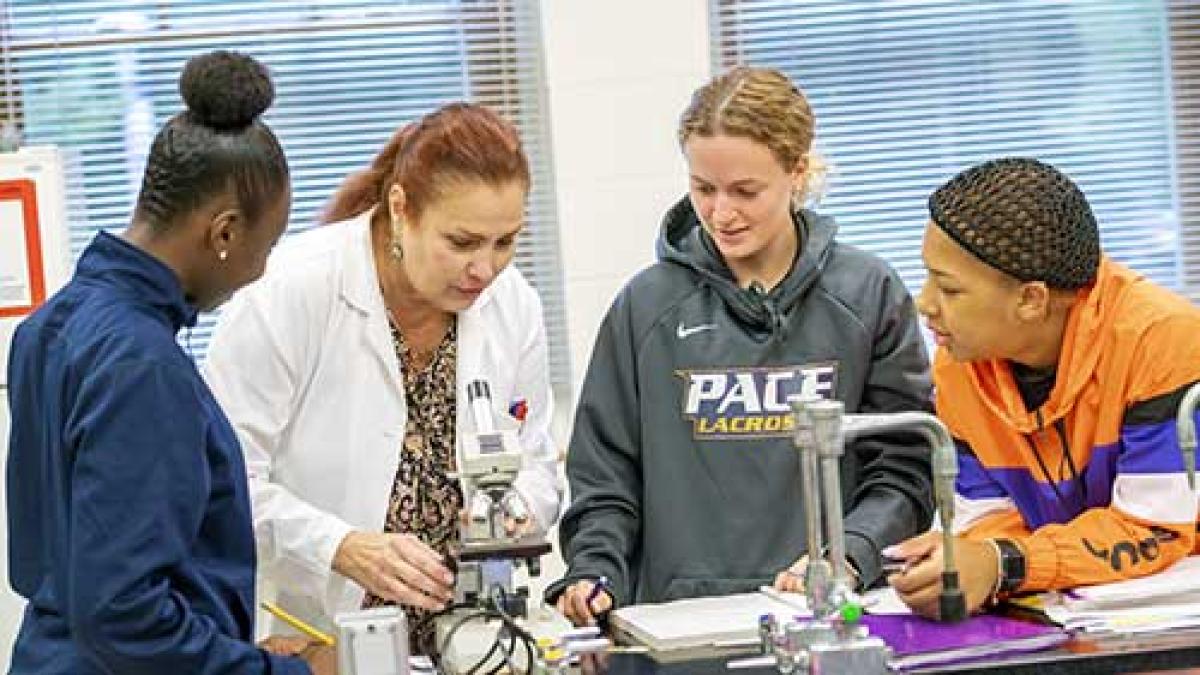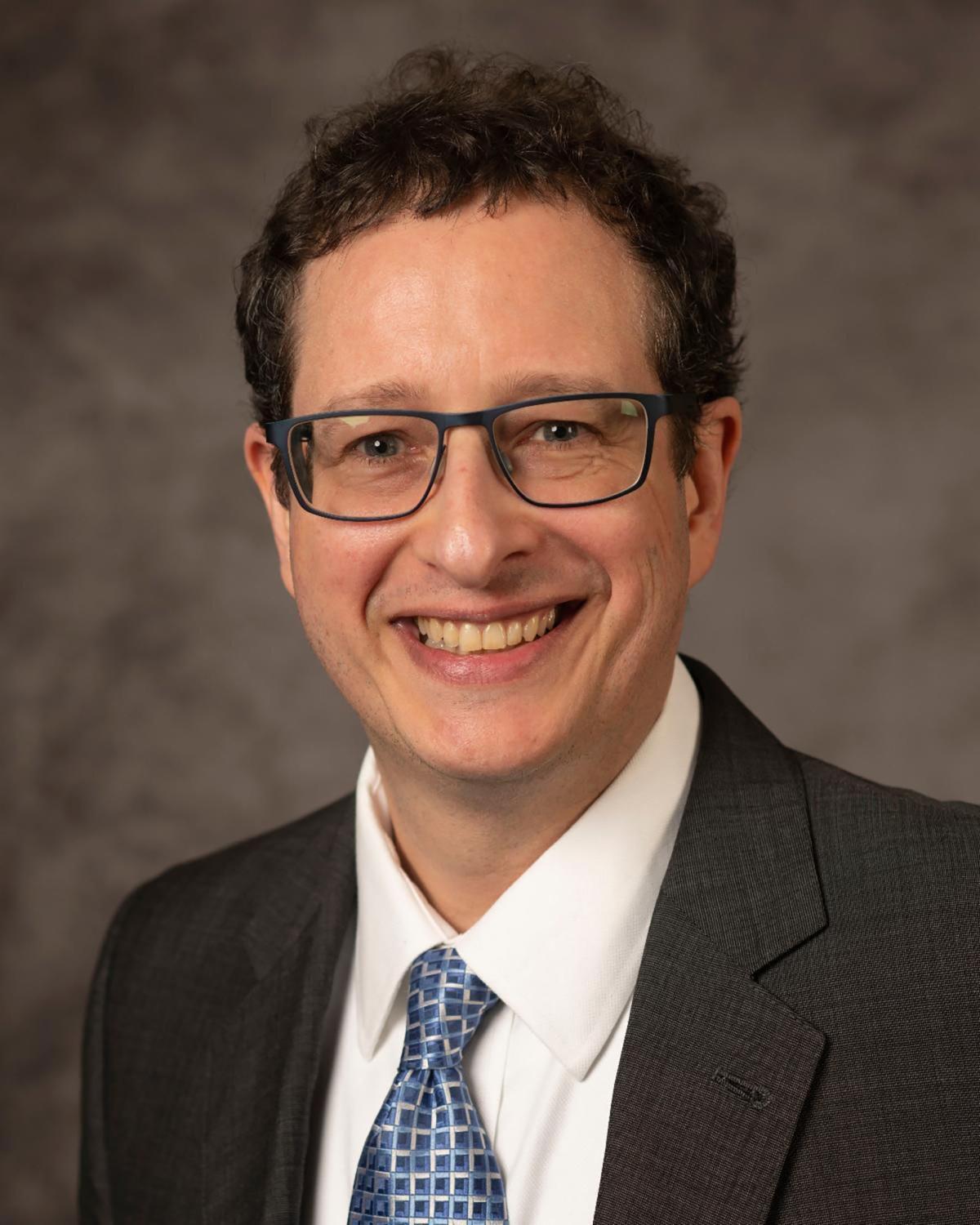
Pace University Appoints New Dean for its College of Health Professions
Pace University has appointed Marcus C. Tye, PhD, as dean of its College of Health Professions. The appointment is effective July 1, 2021. Tye, a licensed clinical psychologist, comes to Pace having served as dean of the School of Health Sciences and interim dean of the School of Education at the College of Staten Island, City University of New York (CUNY).
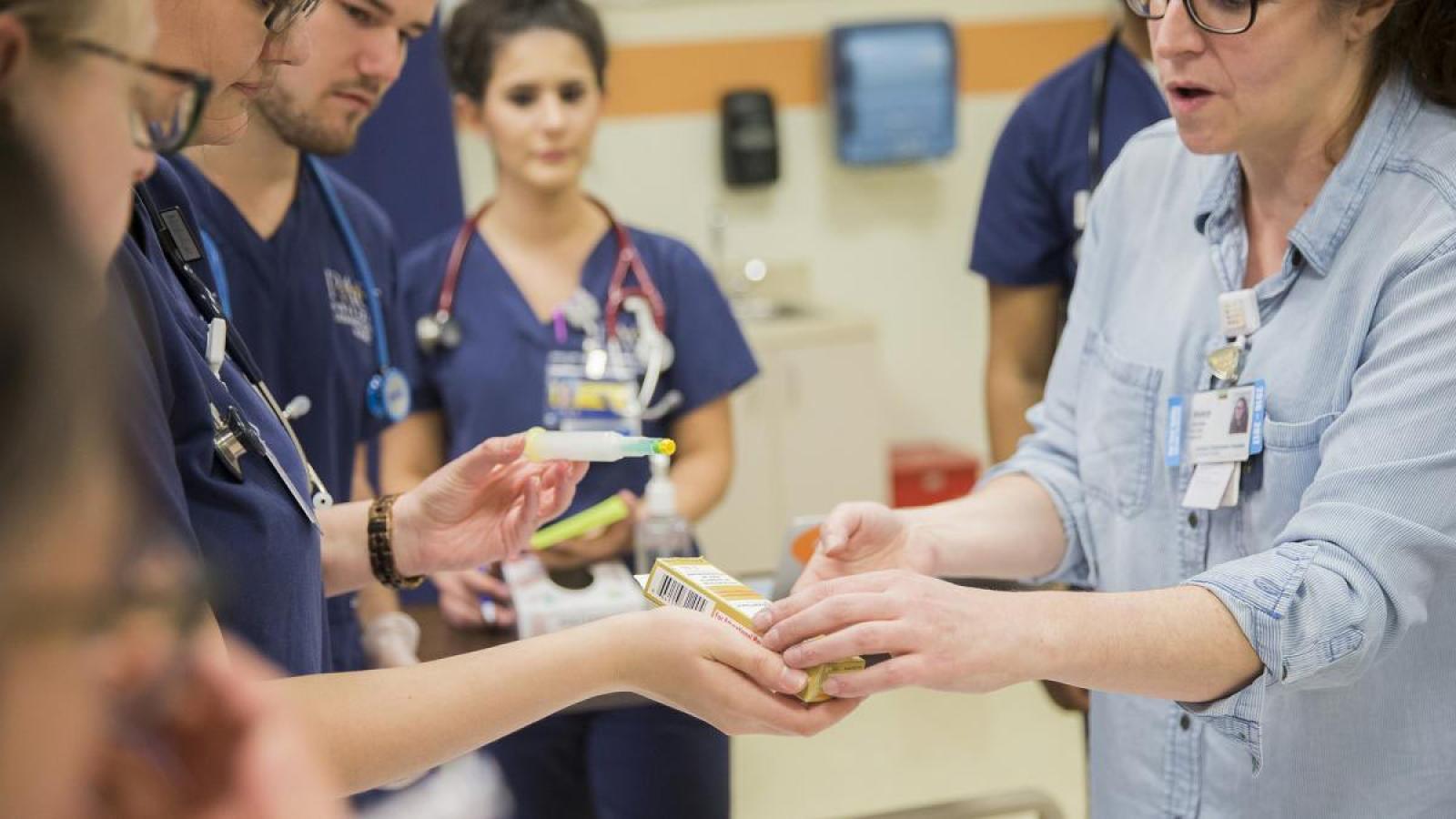
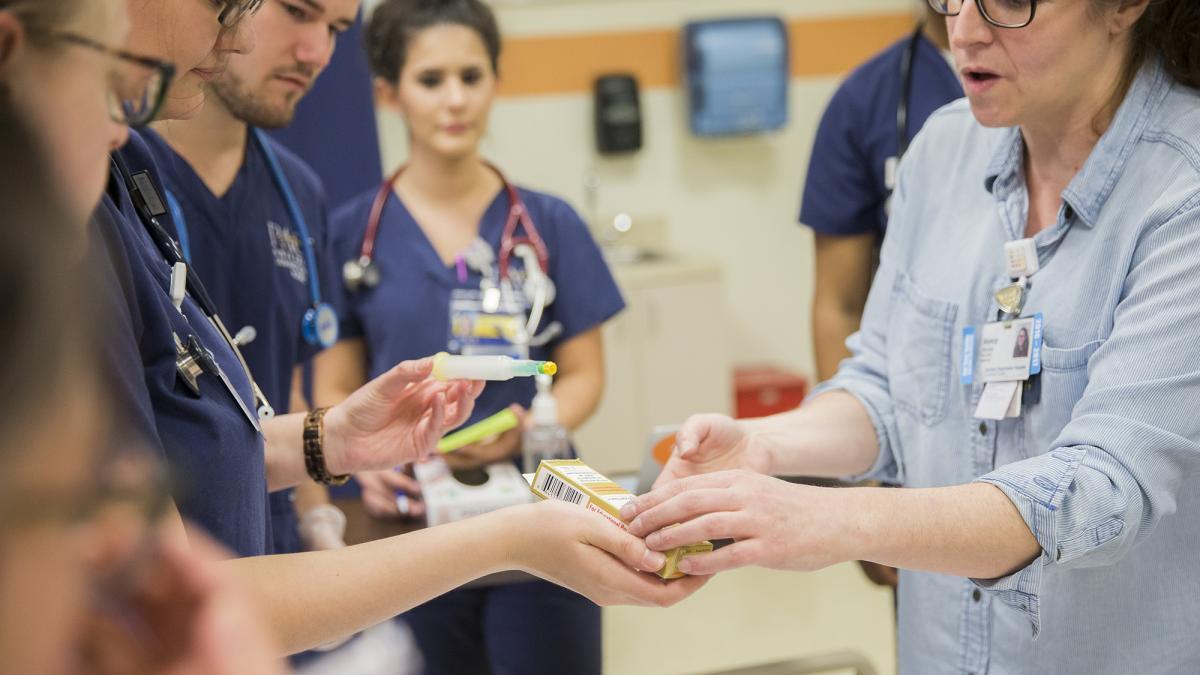
NEW YORK & PLEASANTVILLE, N.Y. (July 20, 2021) – Pace University has appointed Marcus C. Tye, PhD, as dean of its College of Health Professions. The appointment is effective July 1, 2021.

Tye, a licensed clinical psychologist, comes to Pace having served as dean of the School of Health Sciences and interim dean of the School of Education at the College of Staten Island, City University of New York (CUNY). He succeeds Dr. Harriet R. Feldman, who served as a professor at the Lienhard School of Nursing and as dean for the College of Health Professions for 28 years.
“Marcus C. Tye comes to Pace University with a wealth of experience as a clinician and an academic leader who will serve our students well as they prepare for rewarding, in-demand careers in the health professions and health sciences,” said President Marvin Krislov. “We welcome him to the University, and I look forward to working with him as we continue to grow our College of Health Professions. We also salute Dean Feldman for her impressive tenure building CHP.”
The appointment comes at an exciting time for Pace University, as it is in the process of transforming Lienhard Hall, home to its College of Health Professions on the Pleasantville campus, into a modernized Healthcare Hub and adding important programming for students preparing for careers in the region’s burgeoning healthcare and biotechnology sector. Additionally, Pace was recently awarded a $2 million federal grant to increase opportunities and retention for historically underrepresented minorities in the field of nursing.
“Dean Tye's career and expertise align well with the vision, goals, and mission of Pace University, and our aim to educate our student body for current and future healthcare challenges," Provost Vanya Quiñones. "We welcome Dean Tye to Pace and are excited that he will bring the necessary know-how to prepare our students as successful healthcare professionals. We also would like to express our appreciation to Dean Emerita Harriet R. Feldman, who is retiring from the deanship after 28 years of service. We thank her for her long and successful leadership of the College of Health Professions and her strong commitment to the University.”
Prior to Tye’s positions within CUNY, he served as regional lead of a master’s in counseling psychology program at National University in Fresno, California, and held earlier positions at private and public institutions. In those previous roles, his leadership focused on student success and program development.
A prolific author, he has written a comprehensive survey textbook on gender and sexuality rooted in the biopsychosocial model with an emphasis on cultural diversity. He has lived and worked in Europe, Asia, Micronesia, and North America, and cultural diversity forms a core part of his professional writing and work.
Tye has also provided psychological services in assisted living facilities, inpatient rehab, and long-term psychotherapy, as well as consulting in criminal and civil cases.
Tye holds a PhD and master’s degree in Psychology from the University of North Dakota and a bachelor’s degree in Psychology from Princeton University with additional undergraduate study at St. Anne’s College, Oxford University. He currently serves on the board of Princeton’s LGBTQIA+ alumni association.
“It's a privilege to join the College of Health Professions and work to create new programs to complement the already strong roster of program offerings,” Tye said. “I believe Pace is uniquely positioned with medical center affiliations throughout Westchester and NYC to develop new programs in genetic counseling and precision medicine, public health and other fields in the health sciences, and to further diversity and inclusion in interprofessional education with cultural competence and LGBTQIA+ populations. From my first teaching position in 1997, I have worked at universities and colleges that have focused on first-generation students, so I am proud to work for this University that leads the country in social mobility among private universities."
About Pace University
Pace University has a proud history of preparing its diverse student body for a lifetime of professional success as a result of its unique program that combines rigorous academics and real-world experiences. Pace is ranked the #1 private, four-year college in the nation for upward economic mobility by Harvard University’s Opportunity Insights, evidence of the transformative education the University provides. From its beginnings as an accounting school in 1906, Pace has grown to three campuses, enrolling 13,000 students in bachelor’s, master’s, and doctoral programs in more than 150 majors and programs, across a range of disciplines: arts, sciences, business, health care, technology, law, education, and more. The university also has one of the most competitive performing arts programs in the country. Pace has a signature, newly renovated campus in New York City, located in the heart of vibrant Lower Manhattan, next to Wall Street and City Hall, and two campuses in Westchester County, New York: a 200-acre picturesque Pleasantville Campus and the Elisabeth Haub School of Law in White Plains. Follow us on Twitter or on the Pace News website.
About the College of Health Professions
Established in 2010, the College of Health Professions at Pace University offers a broad range of programs at the bachelor, master, and doctoral levels. It is the College’s goal to create innovative and complex programs that reflect the changing landscape of the health care system. These programs are designed to prepare graduates for impactful careers in health care practice, health-related research, or as educators, and equip graduates to work in health policy and global health fields. Students in clinical programs receive hands-on training in the College’s interprofessional Center for Excellence in Healthcare Simulation and have the opportunity to apply their developing skills in real-world settings at many of the regions' leading clinical facilities. The College is currently comprised of several growing and important areas of study, which include the Lienhard School of Nursing with Nursing programs from undergraduate through doctorate, Physician Assistant, Communication Sciences and Disorders, Nutrition and Dietetics, Occupational Therapy, and Health Science. Our vision is to be recognized for our innovative leadership in education, practice, scholarship, and service to improve health and the health professions. Our mission is to educate and challenge diverse students for the health professions to be leaders, innovators and lifelong learners who will positively impact local, national, and global health. For more information, please visit the College of Health Professions website.
Taylor & Francis Online Featured Dyson Professors Anne Toomey and Monica Plata in “Place-making, place-disruption, and place protection of urban blue spaces: perceptions of waterfront planning of a polluted urban waterbody"
Pace University Dyson Professors Dr. Anne Toomey and Dr. Monica Palta co-authored an article in Local Environment about how even polluted urban waterways can be important places for community place-making, and this can be important in the context of coastal resilience planning.

The World Below the Ground
Alongside student scientists, Dyson Professor of Biology Bill Eaton is conducting invaluable research in Costa Rica—helping the world better understand how soil ecology impacts short- and long-term environmental health.
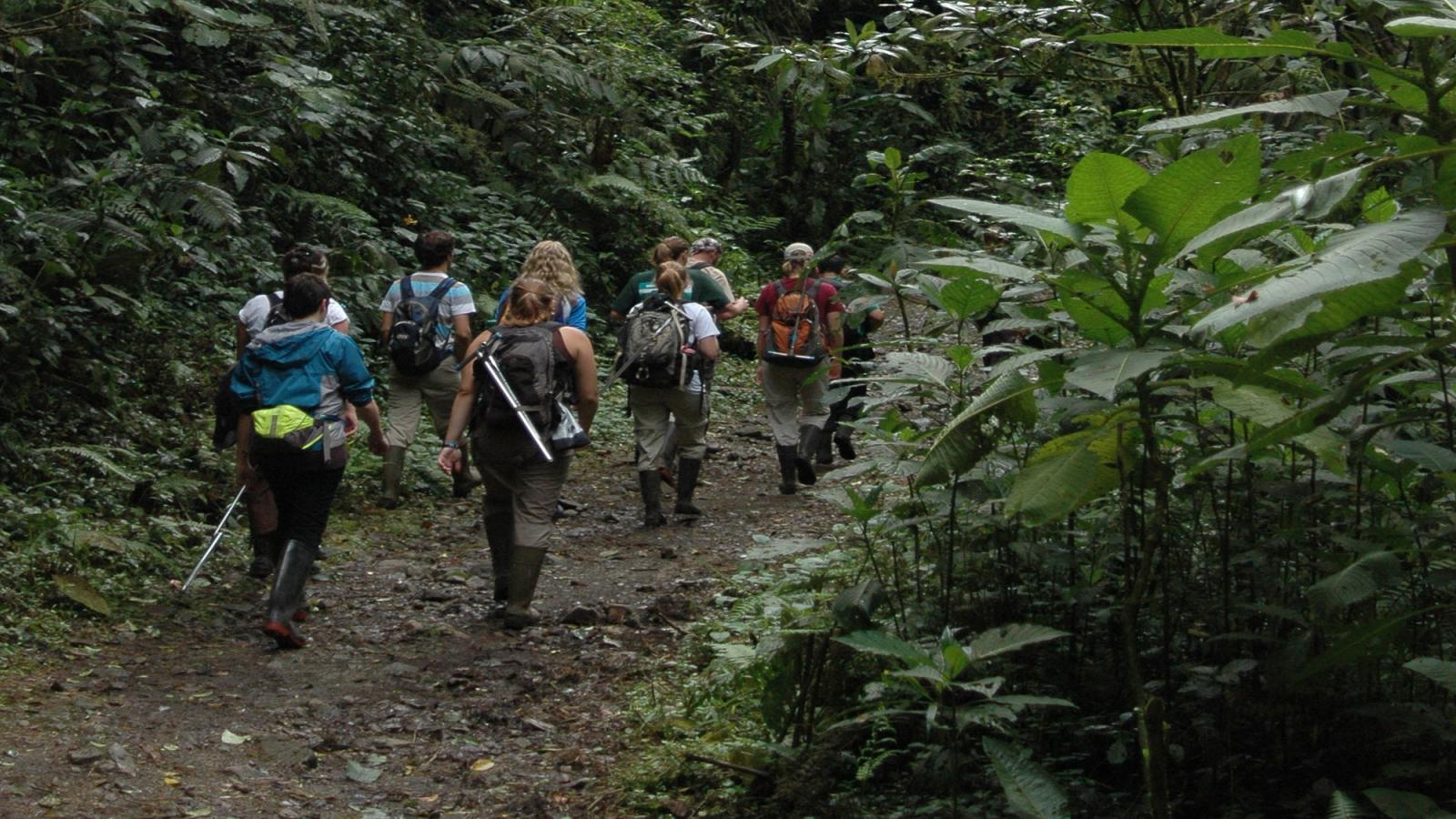
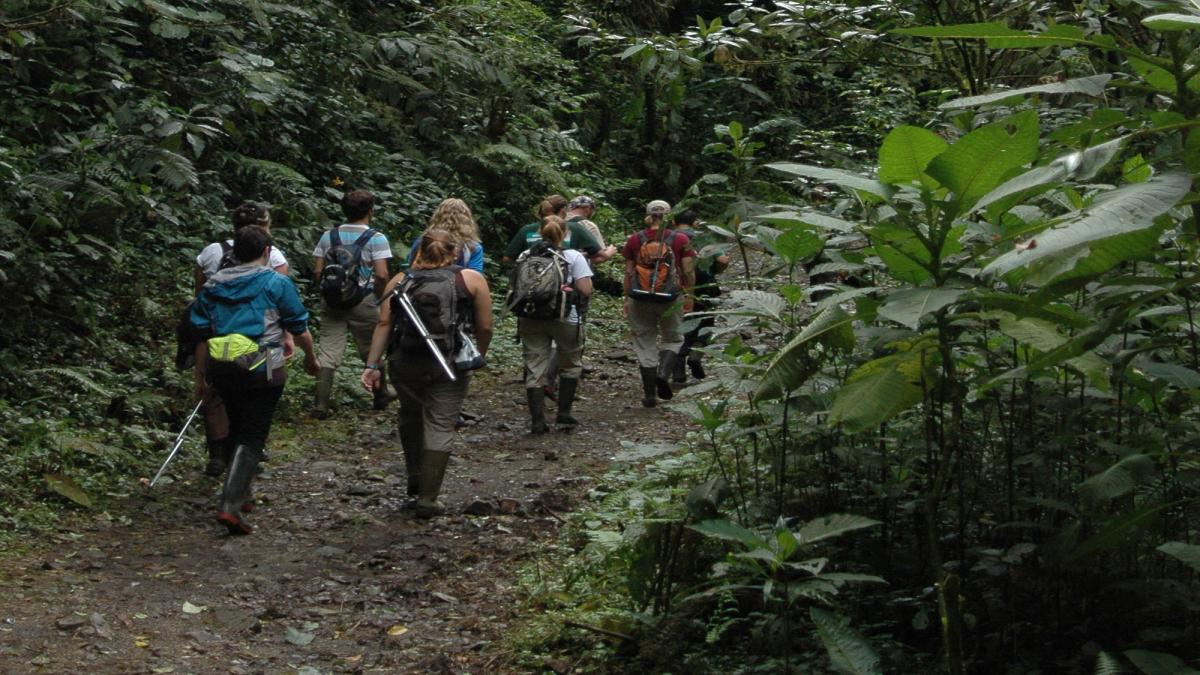
For Dyson Professor Bill Eaton, PhD, the classroom is truly mother earth.
As a tropical soil microbial ecologist, Eaton has been studying how climate change and human land management impact soil ecosystems for over two decades. Currently, Eaton is in Costa Rica making valuable contributions to this ever-growing, ever-important field.
“In respect to the world below the ground, for a long time, there was very little known in ecology about the connections between the microbial world and the carbon and nitrogen cycles,” said Eaton. “Microbial ecology is now just entering into its golden age as a result of new technologies allowing for the identification of microbial species based simply on sequencing of environmental DNA samples, rather than the need to grow the microbes in culture.”
What exactly is microbial ecology? The emerging field refers to the study of microscopic organisms, and their interaction with each other and their environment. While we may often think of soil as simply dirt, the innumerable complexities of that dirt are only beginning to be understood; namely, how changes in soil composition and carbon and nitrogen cycles can determine short-and long-term environmental health.
As Eaton notes, much of the advancements in this field can be credited to advancements in DNA technology.
“The DNA technology has become so advanced, we’ll take soil samples in different areas, extract DNA, send it to get processed, get 55,000 lines on an excel spreadsheet each representing a bacterial species or 20,000 lines representing fungal species,” said Eaton.
“The DNA technology has become so advanced, we’ll take soil samples in different areas, extract DNA, send it to get processed, get 55,000 lines on an excel spreadsheet each representing a bacterial species or 20,000 lines representing fungal species,” said Eaton. “Most of these microbes are likely not culturable, and in the past would not have been identified. This has allowed ecologists to ask really interesting questions with respect to changing microbial diversity and functional groups, and the use of complex organic carbon to produce more biomass as opposed to CO2 release—which occurs with the break down of simple compounds.”
Tropical soil environments, as Eaton describes, are arguably even more important to study, because of their critical importance in global nutrient cycling. Thus, he has made it his mission to investigate these ecosystems further; with the aim of better understanding how tropical soils are affected by human and nature-induced disturbances, and how different restoration practices can aid ecosystem recovery.
In the past two years alone, Eaton has published five different studies across a number of different academic journals. One study, which Eaton published in PLoS One with the assistance of a number of Pace student-researchers, looks at the impact of Hurricane Otto—a Category 3 hurricane that hit Costa Rica in November 2016—and how soil and fungal communities might change due to a drastic weather event.
Primary Forest Impact from Hurricane Otto
This study was in fact, one of the first of its kind—something Eaton credits to happening by chance.
“The main reason why no one has done a before and after study impacts of hurricanes on soils is that you can’t predict where one is going to hit. You have to have plots in a forest before it hits; and you have to study after. I happened to have plots in three different types of forests in the Northern Zone of Costa Rica that had been studied before Hurricane Otto hit, and have been studied since then.”
“There is an academic maturation, but also a human maturation experience. Students come down, and they come back changed. You can’t spend a month here and not have different perspective of the world.”
Though his research acumen and career experiences have made him uniquely qualified to make considerable academic contributions to a field that is becoming more salient by the day, Eaton also has become a mentor to students. By working with students in Costa Rica, Eaton has helped train a generation of future biologists—his rule is that he treats students as “scientists first”—and has seen students mature and grow substantially from simply spending time in Central America.
“There is an academic maturation, but also a human maturation experience. Students come down, and they come back changed. You can’t spend a month here and not have different perspective of the world.”
See More Research from Pace
CHP Professors Angela Northrup and Christen Cooper, and student Rachel Mazariegos '21 are embarking on a multi-disciplinary research study examining sugar sweetened beverage consumption amongst young children; with the aim of combating harmful consumption across varied populations, and helping to reduce childhood obesity.
When Christine Suddeth ’21 enrolled in the Pace School of Performing Arts as a musical theater student, she was in the midst of recovering from a voice injury—one that her voice teacher, PPA Professor Amanda Flynn, helped her recover from. Her injury and subsequent recovery led her down a path of research and investigation.
Pace has spent the past several years taking undergraduate research to the next level. Read about how the newly formed Center for Undergraduate Research Experiences (CURE) is empowering Pace students to make impressive strides in student research.
Bustle featured Dyson Professor Leora Trub in “Am I Texting My Partner Too Much, & Other Virtual Worries”
According to psychotherapist Gin Lalli, who spoke to the Guardian last summer, successful relationships are all about adapting. Couples who stayed together through the pandemic “tend[ed] to have good communication and an understanding of each other, and their vision of their future together is more aligned,” she said. It echoes previous findings, like in 2018, when Pace University’s Leora Trub found that couples with similar texting habits reported greater relationship satisfaction.
WCA Business Intel featured Pace University’s College of Health Professions in “Latest News from WCA”
Pace University’s College of Health Professions has received a nearly $2 million federal grant to increase opportunities and retention for historically underrepresented minorities in the field of nursing. The prestigious Nursing Workforce Diversity grant is funded through the U.S. Health Resources and Services Administration (HRSA) and is designed to increase educational opportunities and retention rates for first generation college students from underrepresented ethnic and racial minority groups, notably African American and Hispanic students pursuing a career in nursing.


Infobae featured Pace Student Shehab Gharib in “Laurent Simons, entre el prodigio de graduarse en Física a los 11 años y la alerta de una universidad: “Es demasiada presión”
Shahab probablemente se graduará con una licenciatura en unos dos años, a la edad de 15 años de la Universidad de Pace de Nueva York.
New York Post featured Pace University professor Elodie Silberstein in “NYC public libraries to finally reopen in three boroughs”
Pace University professor Elodie Silberstein was at the library doing research for a book.




